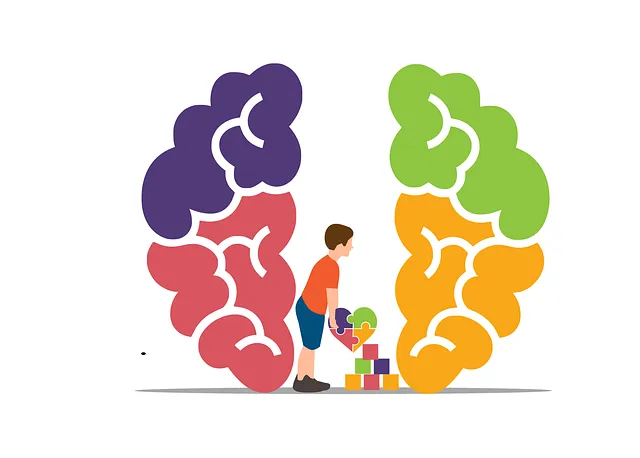Kaiser Permanente mental health center Superior leverages group facilitation to enhance mental wellness. Trained professionals employ tailored techniques like Burnout Prevention and Social Skills Training, fostering safe spaces for connection, emotional regulation, and enhanced self-care routines. Active Listening deepens group dynamics and aids risk assessments. Effective conflict resolution mediates disputes, while structured evaluations ensure impactful sessions and inform care improvements.
“Unleashing the power of collective support, this article explores proven techniques for facilitating mental wellness groups at the Kaiser Permanente Mental Health Center. From cultivating safe and inclusive spaces to mastering active listening, these strategies foster profound connections among diverse participants. Learn how to navigate challenges through effective conflict resolution, ensuring each session delivers measurable impact. Discover evaluation methods that elevate group experiences, contributing to superior outcomes for all involved.”
- Understanding Group Facilitation Role at Kaiser Permanente Mental Health Center
- Creating Safe Spaces: Engagement Strategies for Diverse Groups
- Active Listening: Enhancing Connection Through Empathy
- Navigating Challenges: Conflict Resolution Techniques for Facilitators
- Measuring Impact: Evaluation Methods for Superior Group Sessions
Understanding Group Facilitation Role at Kaiser Permanente Mental Health Center

At Kaiser Permanente Mental Health Center, group facilitation plays a pivotal role in enhancing mental wellness among its diverse patient population. The center’s facilitators are trained professionals who skillfully navigate complex dynamics within groups, fostering an environment that promotes healing and growth. Through structured sessions, they guide individuals to share their experiences, build connections, and develop essential coping strategies for managing stress and anxiety. This collaborative approach not only facilitates emotional regulation but also empowers participants to cultivate superior mental resilience.
Facilitators at Kaiser Permanente Mental Health Center employ various techniques tailored to specific needs. These may include Burnout Prevention strategies to help individuals manage workload and maintain work-life balance, Social Skills Training to enhance communication and interpersonal relationships, and other evidence-based practices that support overall emotional well-being. By combining these methods, the center ensures comprehensive care, enabling patients to navigate life’s challenges with greater confidence and composure.
Creating Safe Spaces: Engagement Strategies for Diverse Groups

Creating safe spaces is an essential technique in group facilitation, especially within a diverse range of participants, including those at Kaiser Permanente mental health centers. This involves fostering an environment where individuals feel comfortable sharing their experiences and insights without fear of judgment or stigma. Facilitators can employ various strategies to achieve this; for instance, establishing ground rules that emphasize respect, confidentiality, and active listening ensures every voice is heard.
Using inclusive language and promoting open dialogue encourages participation from all group members. In diverse groups, recognizing and respecting cultural differences, personal histories, and unique perspectives are vital. Facilitators can enhance engagement by incorporating activities that celebrate diversity and encourage self-care routine development for better mental health. This approach not only strengthens the community outreach program implementation but also facilitates emotional healing processes within a supportive setting.
Active Listening: Enhancing Connection Through Empathy

In facilitating mental wellness groups at the Kaiser Permanente mental health center Superior, Active Listening stands out as a powerful tool to foster connections among members. This technique involves deeply focusing on what individuals are saying, both verbally and nonverbally, to understand their emotions and experiences. By practicing empathy during these discussions, facilitators create an environment where participants feel heard, validated, and supported.
Active listening is not merely passively paying attention but actively engaging with each speaker. It entails paraphrasing statements to confirm understanding, asking open-ended questions to encourage elaboration, and noting nonverbal cues to grasp the full context. This approach significantly enhances group dynamics, promotes self-reflection, and facilitates a deeper exploration of mental health topics. Incorporating active listening into group sessions is an effective burnout prevention strategy for healthcare providers, as it nurtures meaningful connections while emphasizing Mental Health Awareness and facilitating Risk Assessment for Mental Health Professionals.
Navigating Challenges: Conflict Resolution Techniques for Facilitators

Navigating challenges is an integral part of group facilitation, especially when discussing sensitive topics like mental wellness. Conflict resolution techniques are essential tools for facilitators at the Kaiser Permanente mental health center Superior to foster a safe and productive environment. By understanding different conflict styles and communication patterns, facilitators can mediate disputes effectively. This involves active listening, reflecting emotions, and promoting open dialogue to resolve tensions.
The development of superior conflict management skills enhances the overall experience of participants in mental wellness coaching programs. It allows for better risk management planning, ensuring that any potential issues are addressed promptly. Through training in these techniques, mental health professionals can create a harmonious atmosphere, encouraging peers to support one another, which is vital for successful group facilitation and individual growth within the Kaiser Permanente mental health center Superior’s services.
Measuring Impact: Evaluation Methods for Superior Group Sessions

Evaluating the impact of group sessions is a vital aspect of ensuring superior mental health care, especially in settings like Kaiser Permanente mental health centers. Beyond simply gauging satisfaction levels, facilitators should employ structured methods to measure tangible improvements in participants’ well-being. This could involve pre- and post-session assessments to track progress in areas such as mood, stress levels, and coping mechanisms.
One effective evaluation method is the use of standardized questionnaires and scales that have been validated for group settings. These tools can quantify changes in symptoms associated with anxiety, depression, or burnout prevention, providing concrete data on the session’s impact. Additionally, qualitative feedback from participants through open-ended questions or focus groups offers valuable insights into their experiences, confidence boosting aspects, and areas for potential improvement, enriching the overall mental health awareness fostered by these group sessions.
Group facilitation plays a pivotal role in enhancing mental wellness at institutions like Kaiser Permanente Mental Health Center. By employing techniques such as creating safe spaces, active listening, conflict resolution, and proper evaluation methods, facilitators can significantly improve the effectiveness of group sessions. These strategies ensure that diverse groups feel engaged, connected, and supported, ultimately leading to superior outcomes for all participants. Incorporating these proven techniques into mental health practices not only benefits individuals but also contributes to a more comprehensive and successful approach to mental wellness at Kaiser Permanente and similar institutions.






